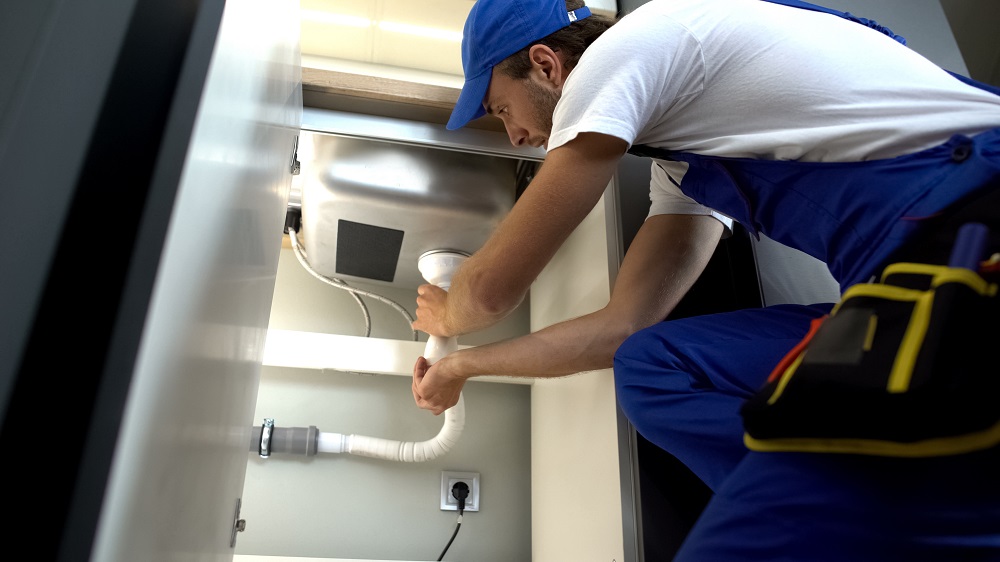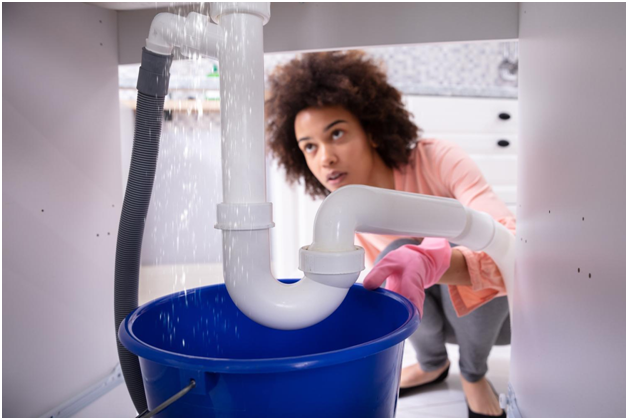Critical Fixes: Steps to Manage Issues Until Support Arrives
Critical Fixes: Steps to Manage Issues Until Support Arrives
Blog Article
Right here further down you will discover more good quality ideas with regards to Plumbing Emergencies: Tips on What To Do Before.

Pipes emergency situations can strike any time, causing tension and prospective damages to your home. Whether it's a ruptured pipeline, a clogged drain, or a leaking tap, recognizing just how to manage the situation up until an expert plumbing technician gets here can conserve you from further problems. This article gives important emergency situation pipes tips to help you alleviate damages and reclaim control during a plumbing crisis.
Turn Off the Water System
The very first step in any kind of plumbing emergency is to turn off the water system. For local issues, such as a leaking faucet or toilet, shut off the shutoff near the component. When it comes to a major leak or burst pipe, find your home's major water shut-off shutoff and transform it off quickly. Recognizing the area of these valves in advance can save important time during an emergency situation.
Address Tiny Leakages with Short-lived Repairs
Small leakages can promptly end up being significant troubles if left uncontrolled. Make use of these momentary repairs until professional help gets here:
While these fixes aren't permanent, they can assist minimize water loss and damages.
Unclog Drains Pipes Securely
A blocked drainpipe can be an irritating and unpleasant issue. Right here's just how to tackle it:
If these approaches don't work, avoid using excessive pressure, as it might get worse the obstruction.
Handle Overflowing Toilets
An overruning toilet can cause instant turmoil. Here's what you ought to do:
Shut Off Your Hot Water Heater
In specific emergencies, such as a ruptured pipe, it's a good idea to turn off your water heater. This avoids overheating or damage to the unit when water quits streaming. Shut off the power supply to the water heater (electric or gas) and let it cool down to prevent prospective dangers.
Briefly Quit a Ruptured Pipeline
A ruptured pipe can cause considerable water damages in minutes. To alleviate the problem:
Call a specialist plumber instantly to deal with the issue completely.
Manage Frozen Piping Meticulously
In cooler climates, icy pipelines are a common emergency. If you think an icy pipeline:
Avoid Additional Damages
Taking fast activity to decrease damages can conserve you money and time in the long run. Here's how:
. Have an Emergency Situation Pipes Kit
Prepare a basic pipes emergency situation kit to handle minor concerns properly. Your package must include:
Having these devices handy can make a considerable distinction in your capability to manage emergency situations.
Know When to Call a Professional.
While quick fixes can aid briefly, certain pipes issues need immediate expert attention. Call a plumbing professional if:.
Promptly calling a professional guarantees the concern is dealt with properly and protects against further difficulties.
Final thought.
Pipes emergencies can be overwhelming, however with the right understanding and tools, you can handle the situation successfully until assistance arrives. By shutting off the water supply, attending to small leakages, and making use of short-term repairs, you can minimize damage and maintain your home safe. Remember, these ideas are temporary options; constantly seek advice from a qualified plumber to deal with the source of the issue. Prep work and fast thinking are your best allies in any type of pipes emergency situation.
8 Helpful Tips for Managing Plumbing Emergencies at Home
If your plumbing system hasn’t failed once, wait for it because almost everyone has a story to tell. Sometimes, it could be simple emergencies such as a leaking pipe, a blocked cistern, or even a big burst pipe. In situations like this, you need to have some handy tips to save you some money and from possible damages.
Take care of minor issues early.
Sometimes, you could have avoided an emergency by taking proactive measures while it was still early. Some major plumbing emergencies can be a result of an ignored minor issue. We recommend that you have items like plumbing tapes and other related items. A plumbing tape can allow you to manage minor leaks before the plumber arrives.
Cut off the water supply.
This tip is essential in almost any type of leakage problem. For problems like minor leakages in the toilet or kitchen, turn off the supply that takes water to the affected pipes. If the leakage is a major pipe, you must shut off the supply valve to the entire building. This will help you avoid flooding your home and neighbors if you share a flat.
Know your plumbing system
Folks typically move into a new apartment without understanding the water supply around the building. This can prove disastrous if a water emergency arises and the plumber is far away. The previous tip will prove useless if you don’t practice this one. More importantly, know where your water shut-off valve is located – you’ll need that knowledge to prevent potential home floods.
Have some common handy tools
There are lots of plumbing emergencies that you can handle without hiring a plumber. That’s why you must keep some tools available always. Some tools that you can use to fix simple plumbing emergencies easily include plumbing tapes, screwdrivers, thread seal tapes, plungers, pliers, tape measures, and rubber gloves.
Insulate your pipes from cold
You’ll save yourself from many plumbing expenses if you protect your water pipes from the cold. This is because of the harmful effects that cold weather can have on your pipes. During winter, your pipes can burst from being overly expected to freezing temperatures. So, make sure insulators are there to keep the pipes working correctly.
Avoid practices that will clog your toilet.
Many people indulge in practices that can damage the plumbing system of the entire building. One of these is when they use their toilet to dispose-off garbage. They flush all kinds of things, such as paper towels, bandages, hairs, female sanitary products, etc., down the toilet. This will block your toilet in the long run, incurring unnecessary expenditures. Dump such waste in the trash instead.
Check your dials regularly.
Sometimes, there could be leakages in your home without noticing them in time. So, constantly monitor your water meter dial. If the dial is reading when there is nobody using water, this is an indicator that there is leaking. Check for leaks immediately. Call a plumber as soon as possible if you can’t find any.
https://www.constructionplacements.com/8-helpful-tips-for-managing-plumbing-emergencies-at-home/

We hope you enjoyed reading our excerpt on Expert Tips for Emergency Plumbing Repairs. Thanks so much for taking the time to read through our post. Sharing is good. One never knows, you might be doing someone a favor. I treasure reading our article about Plumbing Emergencies: Tips on What To Do Before.
Schedule Service Pickup Report this page